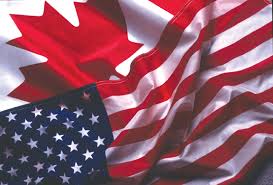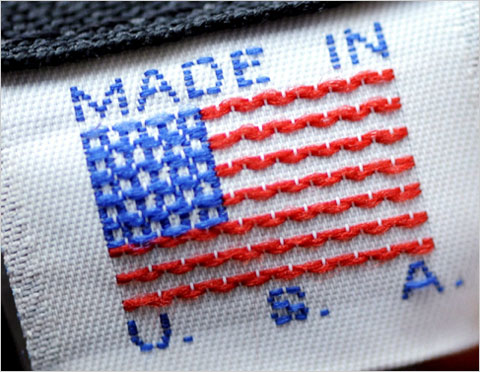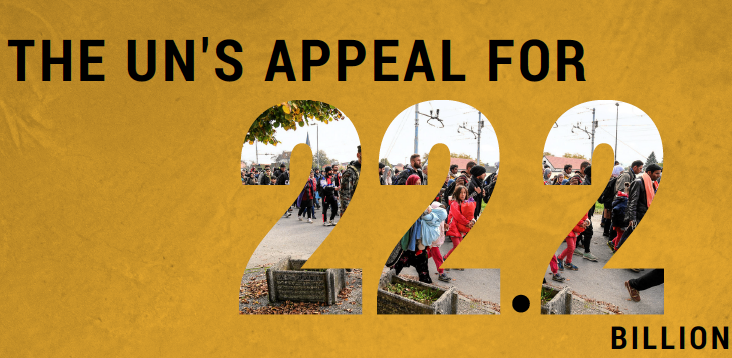“Geography has made us neighbors. History has made us friends. Economics has made us partners. And necessity has made us allies. Those whom nature hath so joined together, let no man put asunder.” – John F. Kennedy, 1961
By Filza Maqsood
The relationship between the U.S. and Canada is one of the closest and most extensive between any two countries in the world. As neighbours, friends, allies and trading partners, the countries rely on each other for security, economic stability, resources and energy. Canada and the U.S. boast a $1.4 trillion USD trade and investment relationship, with 20% of Canada’s GDP reliant on exports to the U.S. Since NAFTA was signed in 1994, trade and ties between the countries have continued to grow. However, occasionally disputes arise, and the massive imbalance in political power between the nations becomes apparent.
 In recent years, there have been several trade arguments that prove that our interests do not always align. What the Financial Post terms “the granddaddy of all trade disputes”, the softwood lumber dispute, is about to resurface with truce set to expire October 2015. Canadians, who have the support of the World Trade Organization, are eager to renew the deal while the U.S. is expected to raise the dispute again. According to a trade expert at Dentons LLP, “No one can see a political dynamic in which the deal as it is now could be continued.”
In recent years, there have been several trade arguments that prove that our interests do not always align. What the Financial Post terms “the granddaddy of all trade disputes”, the softwood lumber dispute, is about to resurface with truce set to expire October 2015. Canadians, who have the support of the World Trade Organization, are eager to renew the deal while the U.S. is expected to raise the dispute again. According to a trade expert at Dentons LLP, “No one can see a political dynamic in which the deal as it is now could be continued.”
The Keystone pipeline has been another point of contention. Originally proposed in 2008, the review process is now coming to its seventh year with a resolution unlikely to appear anytime soon. Last January, Minister John Baird expressed his frustration with the process, saying that “even a ‘no’ would be better than no answer”. The dispute has chilled Canadian-American relations, contributed to uncertainty for the industry and a 2.7% decrease in mining, oil and gas investment across the country in 2013.
Another recent confrontation involves legislation introduced by the U.S. in 2008 mandating segregated processing and labelling for Canadian, Mexican and U.S livestock. Canada considers these rules to be a veiled trade barrier as they give U.S. animals a competitive advantage and force higher processing costs onto Canadians. Canadian beef, pork, chicken and other meat exports have suffered a $1 billion CAN loss per year since the legislation’s enactment. In 2012 the WTO ruled that the country of origin labelling law was unfairly discriminatory and illegal according to WTO rules. To the dismay of Canadian producers, the U.S. reaction was to strengthen the regulation and make it even more detrimental to exporters.
In a follow up ruling this October, the WTO compliance panel found the updated U.S. laws “necessitate increased segregation of meat and livestock in the U.S. market, entail a higher record-keeping burden and increase the original COOL measure’s incentive to choose domestic over imported livestock.” As a penalty to the U.S, Canada may be allowed to impose retaliatory tariffs on certain goods, which it has threatened to do for some American products such as cheese, meat, wine, cereal and chocolate. In a bold move the U.S. launched an appeal of the WTO decision in November, showing it was unafraid to exert its strength and stand its ground on what has already been deemed a “blatantly protectionist policy”. If neither side backs down, the situation could become very tense and even escalate into a trade war, with both sides retaliating to each other’s protectionism.
 Finally, in one of the most controversial U.S -Canada disputes to arise in recent years, the U.S. is blocking Canadians from the construction of a $10-$20 million USD port the Americans have leased in Prince Rupert, BC. The terminal was leased to the Alaska Department of Transportation who will fund the project through the U.S Federal Highway Administration. Under the Buy America Act of 1982, all federally funded transportation projects must procure all materials from the U.S. This leads to the extraordinary case of a construction project on Canadian Crown land that blocks Canadians from participating. “The extraterritorial application of protectionist restrictions on trade within Canada by a foreign government is unreasonable,” Trade Minister Ed Fast recently said.
Finally, in one of the most controversial U.S -Canada disputes to arise in recent years, the U.S. is blocking Canadians from the construction of a $10-$20 million USD port the Americans have leased in Prince Rupert, BC. The terminal was leased to the Alaska Department of Transportation who will fund the project through the U.S Federal Highway Administration. Under the Buy America Act of 1982, all federally funded transportation projects must procure all materials from the U.S. This leads to the extraordinary case of a construction project on Canadian Crown land that blocks Canadians from participating. “The extraterritorial application of protectionist restrictions on trade within Canada by a foreign government is unreasonable,” Trade Minister Ed Fast recently said.
“The extraterritorial application of protectionist restrictions on trade within Canada by a foreign government is unreasonable,” Trade Minister Ed Fast recently said.
There is a feeling of resentment among Canadian producers over the Buy America provisions and the more recent addition to the Buy American Act under the American Recovery and Reinvestment Act of 2009. These acts restrict the procurement of U.S Federal public infrastructure materials, construction and maintenance to U.S. firms, although Canada has negotiated some exemptions. Additionally, most state and municipalities in the U.S. have parallel regulations. In Canada, there is no “Buy Canadian” provision, meaning contractors from around the world are able to bid on government projects. The imbalance in protectionism is constantly a source of tension in the bilateral relationship.
It is apparent that as an economy more than ten times the size of Canada, the United States pulls a hefty weight. Canada needs to walk a fine line and judge the merits of appeasing Canadian producers against maintaining a good relationship with the U.S. As these recent disputes have all shown, when it comes to trade, more often than not Canadians need the U.S, but the U.S. doesn’t need us.




